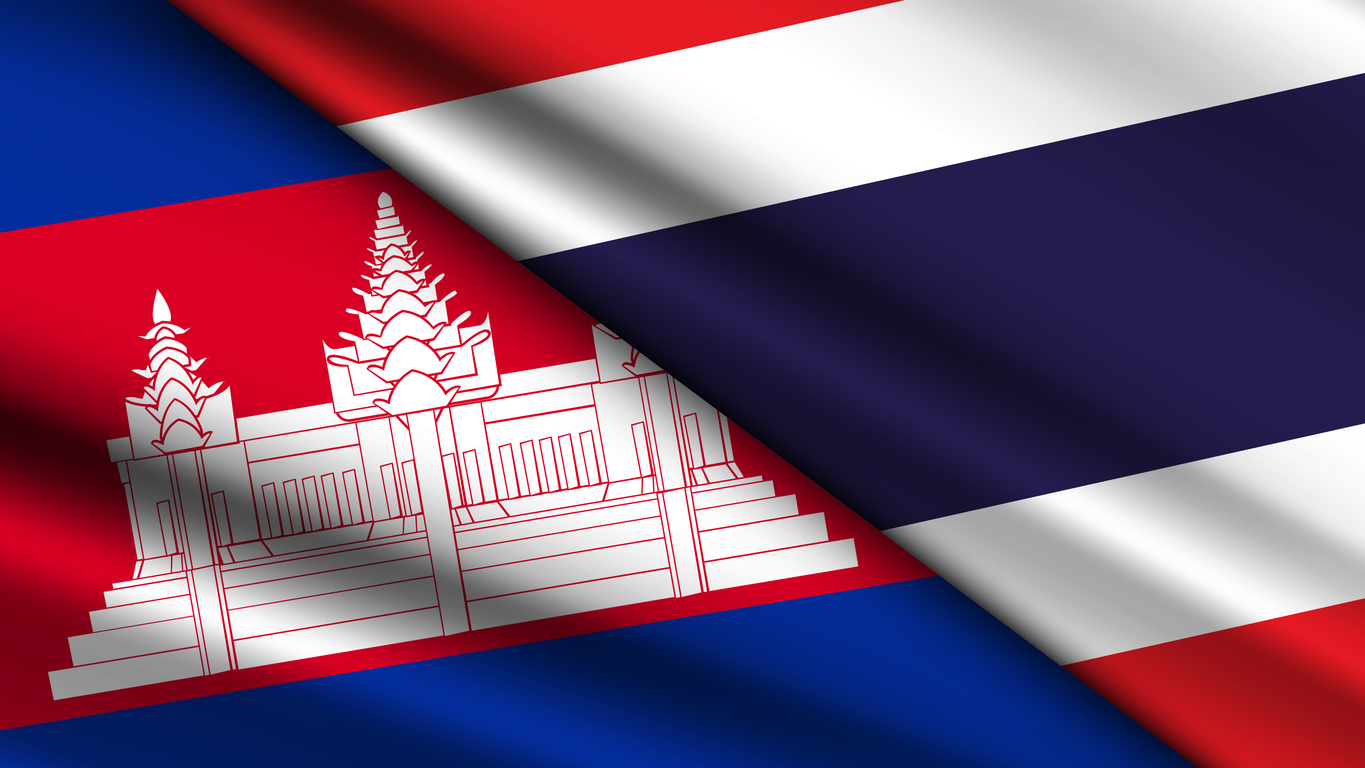By AIDAN KNIGHT
A TRARALGON woman on a mercy mission is stranded in Cambodia.
Her husband is seeking help from Federal Member for Gippsland, Darren Chester and the federal government to bring her home.
Gavin McHale has been a Latrobe Valley resident all his life, and his wife, Chanmanee Ontam (now McHale), has been a resident of Australia for three years after emigrating from Thailand in February 2022.
Mrs McHale’s mother has since been the caregiver for her granddaughter back home in north-east Thailand, but died late last year.
Mr McHale claims that his stepdaughter witnessed to her best friend being tragically killed outside their school gates as part of Thai-Cambodian tensions back home.
The Cambodian government has claimed escalation by Thai ultranationalist and extremist groups complicate the situation, after both sides exchanged gunfire on last month, causing both Thailand and Cambodia to strengthen their military presence on their border.
Mrs McHale and Ms Ontam currently reside within 25 kilometres of the Kantharalak district, an area Mr McHale says they describe as a warzone. Their current location is listed at number five on the Thai government’s evacuation list. Mr McHale’s wife returned to Cambodia as a means to collect her youngest remaining child, and bring her back safely to Australia.
She has been stranded with no government support in the country for 22 months, while the family says the Department of Immigration have been unhelpful in processing the required visas to make their return possible.
Mr McHale claims he is experiencing an uncaring lack of service and accountability from the department, or anyone in government he turns to for help, particularly in his outcry to Mr Chester.
“I fear I might not have a wife and stepdaughter tomorrow,” he told the Express.
“The department charge for this processing, won’t give my money back, and can’t tell me when they’ll come home.”
Mr McHale also suffers from ischemic heart disease, and his wife acts as (and is officially listed) as his personal carer – a level of support he has been left without for the duration of this ordeal. He has proceeded with doctor’s letters to immigration appealing for them to “bring her back to look after me”, currently to no avail.
“It’s as if any time I contact them they put it to the bottom of the list”, he said emotionally.
However, when reached for comment, Darren Chester confirmed with the Express he’d written on Mr McHale’s behalf to several relevant members. Seeing the severity of the situation, Mr Chester went straight to the top – the Minister for Home Affairs, Tony Burke only to hear back from the former Assistant for Immigration instead.
The former minister, the Hon Matt Thistlewaite, advised Mr Chester as follows: “All visa applicants must meet the requirements set out in migration legislation.”
Assessments of a child visa application often cannot be completed quickly, because of the need to consider applications against a range of criteria such as family relationship, health, character and identity before a visa can be granted.
To ensure equity for all applicants who may be in similar circumstances, the department generally considers child visa applications in the order in which they are received. While there is provision to prioritise an application where there are compelling or compassionate circumstances, this is limited to a small number of circumstances; for example, where the applicant is in danger in their current location.
“While I cannot give a timeframe for when Ms Ontam’s application will be finalised, please be assured that the authorised recipient will be contacted when the application reaches the next stage of processing,” Mr Chester said.
As of 2025, the Department of Home Affairs takes up to 39 months to process subclass 101 visas.
This is the classification of an Australian permanent residency visa that allows a child (i.e, Mr. McHale’s surviving stepdaughter) living outside Australia to move to Australian soil to reside with their Australian parent, guardian or eligible sponsor.
A completed subclass 101 visa provides the child with permanent residency, with eligibility for citizenship, and access to education and healthcare within the country.
However, an immense demand for such a process due to similar international conflicts and various other scenarios in less fortunate parts of the world creates a significant backlog for these applications. This is a wait that leaves many families in limbo, and like Mr McHale, strained both emotionally and financially.
Mr Chester added his office receives dozens of similar visa inquiries from constituents each year.
“There needs to be a review of the way these processes work,” Mr McHale said.
“It’s obviously not efficient enough and I can’t seem to be able to qualify it as a dangerous enough situation for it to be fast tracked. We wouldn’t be the only family effected like this.
“With the best friend shooting, losing her main care giver, her mum flying there to take care of her and the current conflict where they are constantly living in fear, somehow they still don’t meet the criteria to look at a dependent child visa,.
“The government does not support us in any way”.
After his correspondence with Mr Thistlewaite, Mr Chester has repeated his attempts to reach the Minister for Home Affairs on behalf of Mr McHale, but is yet to receive a response.











